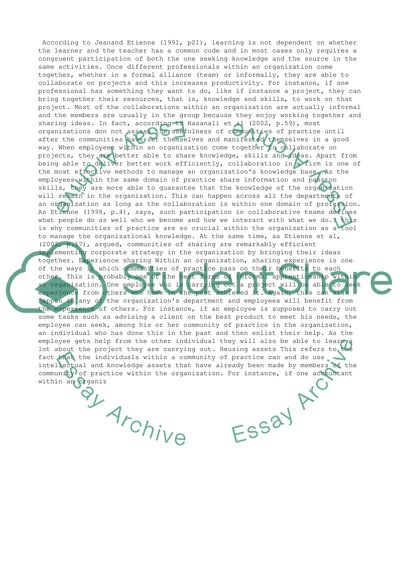Cite this document
(“Communities of practice and their contribution to organisational Essay”, n.d.)
Retrieved from https://studentshare.org/management/1472515-communities-of-practice-and-their-contribution-to
Retrieved from https://studentshare.org/management/1472515-communities-of-practice-and-their-contribution-to
(Communities of Practice and Their Contribution to Organisational Essay)
https://studentshare.org/management/1472515-communities-of-practice-and-their-contribution-to.
https://studentshare.org/management/1472515-communities-of-practice-and-their-contribution-to.
“Communities of Practice and Their Contribution to Organisational Essay”, n.d. https://studentshare.org/management/1472515-communities-of-practice-and-their-contribution-to.


